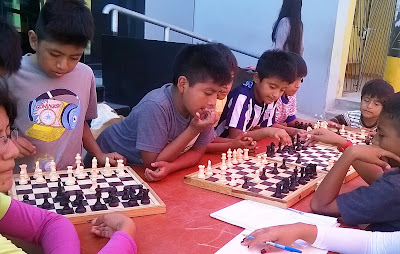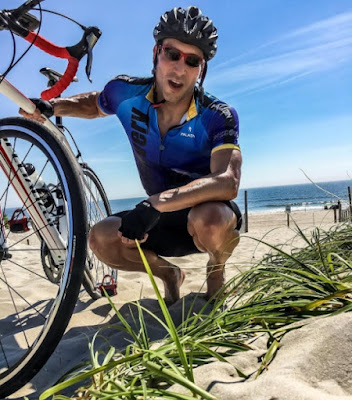This sportsman and musician brings the ‘busy’ concept
very close to ‘useful’ – and ‘inspiring’.
How does he make to have time for sports and music? He
says he finds that time and he can accomplish everything he plans. But he
doesn’t practice just one sport neither he just plays one instrument. He goes
in and out five different sports and plays and teaches music as well . and he
also travels!
The life of James Lenger is the right opposite to inactivity. He is
doing something around the clock, only stopping to sleep. Well, we hope so.
James has practiced sports along his life and tried the
most different ones including soccer. But he is specialized in modern pentathlon, developed by
modern Olympics’ promotor Pierr de Coubertin.
“I played those sports in high school and college,
before I knew about pentathlon. I grew up always loving and playing sports.”
According to James’ website, de Coubertin
wanted to save the traditional main event of Ancient Olympics created in
Greece, around 3000 years ago. That he only did was to replace five ancient
disciplines for modern ones: swimming, running,
riding, fencing and
shooting. James practices all those ones.
“It depends on the day. I usually schedule swimming
5-6 days a week, running 4-5 days, shooting 2-3 days, fencing 3 days, and
riding 1-2 days. It sometimes depends on what my coaches want me to do.”
Beating
James’ motivation to have that pretty active life is
very personal: “The pentathlon got me into all of the sports, and I dedicated
my training to my mother, who had died a few years ago.”
It’s probable that many of us consider practicing five
sports during many hours a day is enough. Well, many of us but James doesn’t,
because he finds time to teach in GuitarCities,
his own music school what promises you to approach proffessionally to that art,
no matter if you’re a beginner or a senior.
“It's busy. It is around 30 hours training and 40-50
hours working every week. I own my own business, so my schedule can be a little
flexible.”
James usually teaches in Chicago, Illinois, and
sometimes he goes to the other studios in New York City, San Francisco or
London. There are projects to come to Latin America, once he proves the
teaching scheme is much more consistent than today.
“Eventually. I want to make sure we have a good system
down, and we continue to refine it in the US first. I even had some conversations
about doing sport and music camps in Latin America. It will just take a little
while to get that going, but definitely something I thought of.”
Patience for
combination
 And having a busy schedule, James wins. How does he
do? The simple answer is: he just does it. Why not you?
And having a busy schedule, James wins. How does he
do? The simple answer is: he just does it. Why not you?
“It's therapy for me, so it has helped me out to cope
with the loss, but I am also motivated to keep training for those that can't
train. I want to make the most I can with what I have been given.
James assures that combination of sports and music,
especially beginning the day, can make you more productive.
“Both can be very therapeutic. For myself, and many
students, sometimes describing your mood can be difficult, so often we can
write a song based on how we feel, and that can be a good outlet. Sports can
also be a great way to get away for a
while.”
And the key word, even being in a hurry, is patience.
“When I teach, I have to constantly remind the student
to slow down when they play, so they are sure to get the correct technique.
When I practice sports, I have to always remind myself the same thing, as I
have a tendency to want to rush through things. On the other hand, I know how
difficult it can be to learn something new (like fencing), and have to remember
to apply patience when I instruct music, because it is a reminder to me how
tough something new can be.
So the next time you think about 24 hours are not
enough for you, you should think about James: playing and winning – all in
time.
Post-produced
by Sheyla Benavente.

























